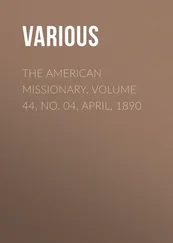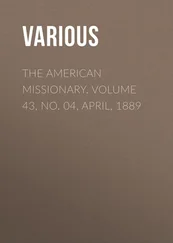Elizabeth Ellet - The Women of The American Revolution, Vol. 1
Здесь есть возможность читать онлайн «Elizabeth Ellet - The Women of The American Revolution, Vol. 1» — ознакомительный отрывок электронной книги совершенно бесплатно, а после прочтения отрывка купить полную версию. В некоторых случаях можно слушать аудио, скачать через торрент в формате fb2 и присутствует краткое содержание. Жанр: foreign_antique, foreign_prose, на английском языке. Описание произведения, (предисловие) а так же отзывы посетителей доступны на портале библиотеки ЛибКат.
- Название:The Women of The American Revolution, Vol. 1
- Автор:
- Жанр:
- Год:неизвестен
- ISBN:нет данных
- Рейтинг книги:5 / 5. Голосов: 1
-
Избранное:Добавить в избранное
- Отзывы:
-
Ваша оценка:
- 100
- 1
- 2
- 3
- 4
- 5
The Women of The American Revolution, Vol. 1: краткое содержание, описание и аннотация
Предлагаем к чтению аннотацию, описание, краткое содержание или предисловие (зависит от того, что написал сам автор книги «The Women of The American Revolution, Vol. 1»). Если вы не нашли необходимую информацию о книге — напишите в комментариях, мы постараемся отыскать её.
The Women of The American Revolution, Vol. 1 — читать онлайн ознакомительный отрывок
Ниже представлен текст книги, разбитый по страницам. Система сохранения места последней прочитанной страницы, позволяет с удобством читать онлайн бесплатно книгу «The Women of The American Revolution, Vol. 1», без необходимости каждый раз заново искать на чём Вы остановились. Поставьте закладку, и сможете в любой момент перейти на страницу, на которой закончили чтение.
Интервал:
Закладка:
"Dear Sir: – I would not take a moment of your time to tell you the distress and anxiety I feel, but only to beg you to let me know in what state things are, and what is likely to be the consequence. I write not to Mr. Reed because I know he is not in a situation to attend to me. I conjure you by the friendship you have for Mr. Reed, don't leave him. – E. R."
And throughout this scene of varied perplexity, when the heart of the statesman was oppressed by trouble without – disappointment, ingratitude – all that makes a politician's life so wretched, he was sure to find his home happy, his wife smiling and contented, with no visible sorrow to impair her welcome, and no murmur to break the melody of domestic joy. It sustained him to the end. This was humble, homely heroism, but it did its good work in cheering and sustaining a spirit that might otherwise have broken. Let those disparage it who have never had the solace which such companionship affords, or who never have known the bitter sorrow of its loss.
In May, 1780, Mrs. Reed's youngest son was born. It was of him, that Washington, a month later wrote, "I warmly thank you for calling the young Christian by my name," and it was he who more than thirty years afterwards, died in the service of his country, 5not less gloriously because his was not a death of triumph. It was in the fall of this year, that the ladies of Philadelphia united in their remarkable and generous contribution for the relief of the suffering soldiers, by supplying them with clothing. Mrs. Reed was placed, by their united suffrage, at the head of this association. The French Secretary of Legation, M. de Marbois, in a letter that has been published, tells her she is called to the office as "the best patriot, the most zealous and active, and the most attached to the interests of her country."
Notwithstanding the feeble state of her health, Mrs. Reed entered upon her duties with great animation. The work was congenial to her feelings. It was charity in its genuine form and from its purest source – the voluntary outpouring from the heart. It was not stimulated by the excitements of our day – neither fancy fairs, nor bazaars; but the American women met, and seeing the necessity that asked interposition, relieved it. They solicited money and other contributions directly, and for a precise and avowed object. They labored with their needles and sacrificed their trinkets and jewelry. The result was very remarkable. The aggregate amount of contributions in the City and County of Philadelphia, was not less than 7,500 dollars, specie; much of it, too, paid in hard money, at a time of the greatest appreciation. "All ranks of society," says President Reed's biographer, "seem to have joined in the liberal effort, from Phillis, the colored woman, with her humble seven shillings and six pence, to the Marchioness de La Fayette, who contributed one hundred guineas in specie, and the Countess de Luzerne, who gave six thousand dollars in continental paper." La Fayette's gentlemanly letter to Mrs. Reed is worth preserving.
Head Quarters, June the 25th, 1780.
Madam,
In admiring the new resolution, in which the fair ones of Philadelphia have taken the lead, I am induced to feel for those American ladies, who being out of the Continent cannot participate in this patriotic measure. I know of one who, heartily wishing for a personal acquaintance with the ladies of America, would feel particularly happy to be admitted among them on the present occasion. Without presuming to break in upon the rules of your respected association, may I most humbly present myself as her ambassador to the confederate ladies, and solicit in her name that Mrs. President be pleased to accept of her offering.
With the highest respect, I have the honor to be,
Madam, your most obedient servant,
La Fayette.
Mrs. Reed's correspondence with the Commander-in-chief on the subject of the mode of administering relief to the poor soldiers, has been already published, 6and is very creditable to both parties. Her letters are marked by business-like intelligence and sound feminine common sense, on subjects of which as a secluded woman she could have personally no previous knowledge, and Washington, as has been truly observed, "writes as judiciously on the humble topic of soldier's shirts, as on the plan of a campaign or the subsistence of an army."
All this time, it must be borne in mind, it was a feeble, delicate woman, who was thus writing and laboring, her husband again away from her with the army, and her family cares and anxieties daily multiplying. She writes from her country residence on the banks of Schuylkill, as late as the 22nd. of August, 1780: "I am most anxious to get to town, because here I can do little for the soldiers." But the body and the heroic spirit were alike overtasked, and in the early part of the next month, alarming disease developed itself, and soon ran its fatal course. On the 18th of September, 1780 – her aged mother, her husband and little children, the oldest ten years old, mourning around her – she breathed her last at the early age of thirty-four. There was deep and honest sorrow in Philadelphia, when the news was circulated that Mrs. Reed was dead. It stilled for a moment the violence of party spirit. All classes united in a hearty tribute to her memory.
Nor is it inappropriate in closing this brief memoir, to notice a coincidence in local history; a contrast in the career and fate of two women of these times, which is strongly picturesque.
It was on the 25th of September, 1780, seven days after Mrs. Reed was carried to her honored grave, and followed thither by crowds of her own and her husband's friends, that the wife of Benedict Arnold, a native born Philadelphia woman, was stunned by the news of her husband's detected treachery and dishonor. Let those who doubt the paramount duty of every man and every woman, too, to their country, and the sure destiny of all who are false to it, meditate on this contrast. Mrs. Arnold had been a leader of what is called fashion, in her native city, belonging to the spurious aristocracy of a provincial town – a woman of beauty and accomplishment and rank. Her connections were all thorough and sincere loyalists, and Arnold had won his way into a circle generally exclusive and intolerant by his known disaffection, and especially his insolent opposition to the local authorities, and to Mr. Reed as the chief executive magistrate. The aristocratic beauty smiled kindly on a lover who felt the same antipathies she had been taught to cherish. While Mrs. Reed and her friends were toiling to relieve the wants of the suffering soldiers – in June, July and August, 1780, Mrs. Arnold was communing with her husband, not in plans of treason, but in all his hatreds and discontents. He probably did not trust her with the whole of the perilous stuff that was fermenting in his heart; for it was neither necessary nor safe to do so. But he knew her nature and habits of thought well enough to be sure that if success crowned his plan of treason, and if honors and rewards were earned, his wife would not frown, or reject them because they had been won by treachery. And he played his game out, boldly, resolutely, confidently. The patriot woman of Philadelphia sank into her grave, honored and lamented by those among whom so recently she had come a stranger. Her tomb, alongside of that of her husband, still stands on the soil of her country. The fugitive wife of an American traitor fled forever from her home and native soil, and died abroad unnoticed, and by her husband's crime dishonored. She was lost in a traitor's ignominy. Such was then and such ever will be, the fate of all who betray a public and a patriot trust.
III. CATHARINE SCHUYLER
The name of Philip Schuyler adds another to the list of distinguished men indebted largely to maternal guidance. To his mother, a woman of strong and cultivated mind, he owed his early education and habits of business, with that steadfast integrity, which never faltered nor forsook him. His wife – the beloved companion of his maturer years – cherished his social virtues and added lustre to his fame. Those who shared his generous hospitality, or felt the charm of his polished manners, were ready to testify to the excellence of her whose gentle influence was always apparent. A brief notice of her is all that can here be offered.
Читать дальшеИнтервал:
Закладка:
Похожие книги на «The Women of The American Revolution, Vol. 1»
Представляем Вашему вниманию похожие книги на «The Women of The American Revolution, Vol. 1» списком для выбора. Мы отобрали схожую по названию и смыслу литературу в надежде предоставить читателям больше вариантов отыскать новые, интересные, ещё непрочитанные произведения.
Обсуждение, отзывы о книге «The Women of The American Revolution, Vol. 1» и просто собственные мнения читателей. Оставьте ваши комментарии, напишите, что Вы думаете о произведении, его смысле или главных героях. Укажите что конкретно понравилось, а что нет, и почему Вы так считаете.












